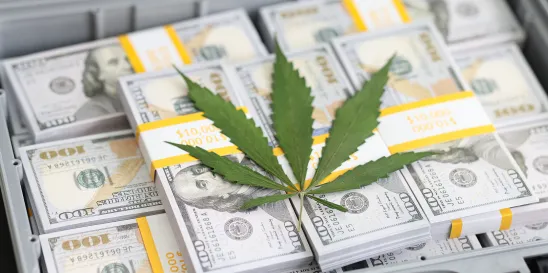A Massachusetts Bankruptcy Court’s recent appellate decision in Blumsack v. Harrington (In re Blumsack) leaves the door open for those employed in the cannabis industry to seek bankruptcy relief where certain conditions are met. This is a departure from the bankruptcy court’s decision which dismissed an individual’s petition for Chapter 13 bankruptcy relief because – as a “budtender” at a cannabis dispensary in Massachusetts – he engaged in (and planned to continue engaging in) activities that violated the federal Controlled Substances Act (CSA) and thus per se lacked the requisite “good faith” to petition and propose a plan for bankruptcy.
Chapter 13 of the federal bankruptcy code requires that the court confirm a bankruptcy plan if various factors are met, including that “the plan has been proposed in good faith” and “the action of the debtor in filing the petition was in good faith.” “Good faith” is undefined in the code. A “totality of the circumstances” analysis applies to determine whether good faith is present.
The bankruptcy court created a bright-line rule denying bankruptcy relief to those who undertake and earn income from actions that violate the CSA because such conduct displayed, in the bankruptcy court’s eyes, a lack of good faith. The appellate court disagreed. First, the appellate court noted that despite observing that a “totality of the circumstances” analysis applied, the bankruptcy court did not employ this analysis, but instead “grounded [its ruling] in a single consideration – the debtor’s ongoing violation of the CSA.” (As we mentioned previously, the bankruptcy court did not consider whether “good faith” may be impacted by the legality of debtor’s activity under state law.) Second, a “good faith” analysis must be tethered to the debtor’s actions in filing the petition, rather than an unchecked referenda on the debtor’s conduct generally (here, the nature of his employment). Finally, whether bankruptcy relief may be categorically unavailable to debtors participating in the cannabis industry is a policy decision for the legislature to decide.
Ultimately, though, the appellate court agreed that the debtor had not proposed a bankruptcy plan in good faith. Bankruptcy trustees are not allowed to administer assets pursuant to a bankruptcy plan when those assets are illegal under the CSA or constitute proceeds of activity criminalized by the CSA. The debtor was unable to establish that he segregated his cannabis income from the funds he proposed to use for his bankruptcy plan, which “crossed a line into bad faith territory” according to the appellate court. Further, the bankruptcy court did not abuse its discretion in denying the debtor leave to propose a modified plan, as bankruptcy courts have broad discretion to say “when enough is enough.”
Thus, the appellate decision trades one bright line rule for another. Bankruptcy relief may be available for those who undertake and earn income from actions that violate the CSA, but bankruptcy plans directly funded by the proceeds of actions that violate the CSA are “per se, proposed in bad faith.” Debtors who intend to continue earning income from activities criminalized by the CSA after obtaining bankruptcy relief must be able to demonstrate that all proceeds used to fund the debtor’s bankruptcy plan can be traced to non-cannabis-income sources, and any cannabis income must be segregated from, and not commingled with, non-cannabis-income sources.
Thus, the appellate decision trades one bright line rule for another. Bankruptcy relief may be available for those who undertake and earn income from actions that violate the CSA, but bankruptcy plans directly funded by the proceeds of actions that violate the CSA are “per se, proposed in bad faith.”





 />i
/>i

